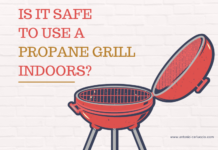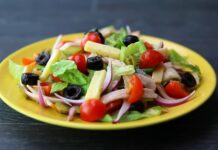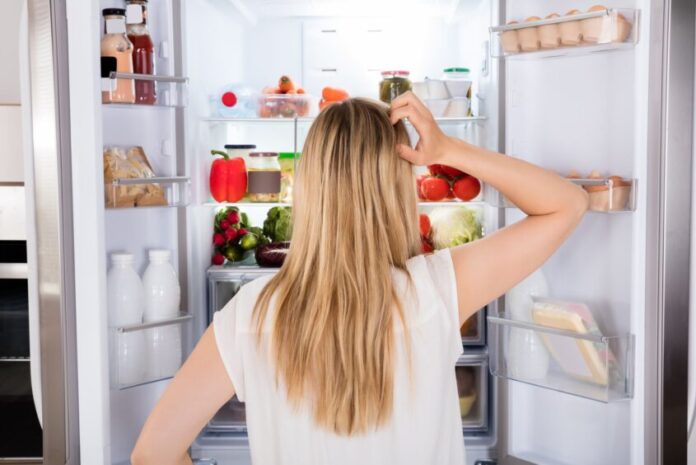
It is believed that cold significantly increases the shelf life of vegetables, fruits, meat, fish, and ready-made dishes. Undoubtedly, today’s refrigerators have many functions, have a large number of departments for each type of product. Read more at cookingtopgear. However, some products cannot be stored in the refrigerator: at a low temperature, they lose their taste and aroma, and sometimes even deteriorate faster.
Each of us can easily find a significant part of the products in your refrigerator from the list below.
1. Bread
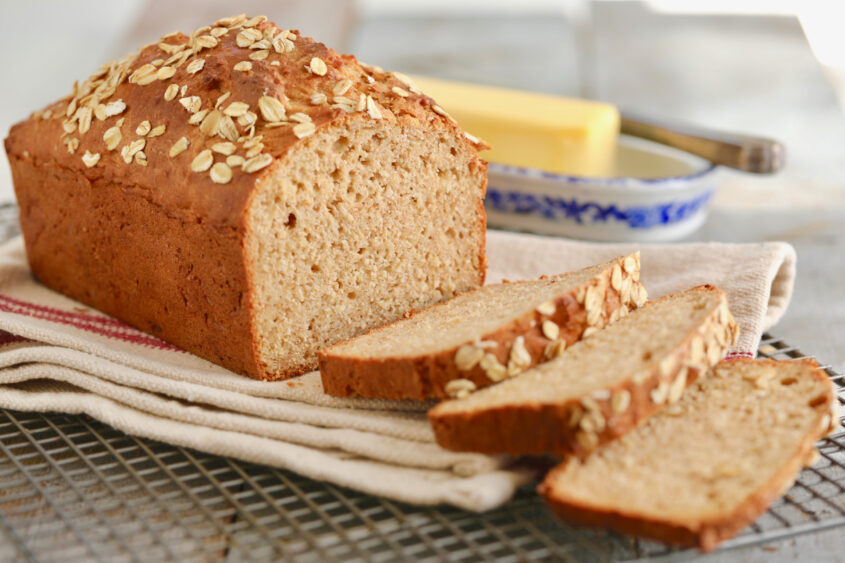
Bread is often put in the fridge to keep it fresh for longer. However, the result is the opposite – at +6 °C the baked goods stale more quickly. This is due to chemical reactions in which starch is involved. Therefore, it is undesirable to put the bread in the refrigerator. If necessary, it should be frozen in portions and heated in the microwave before use. The same is true for loaves, cakes, and sweet rolls.
2. Fruits
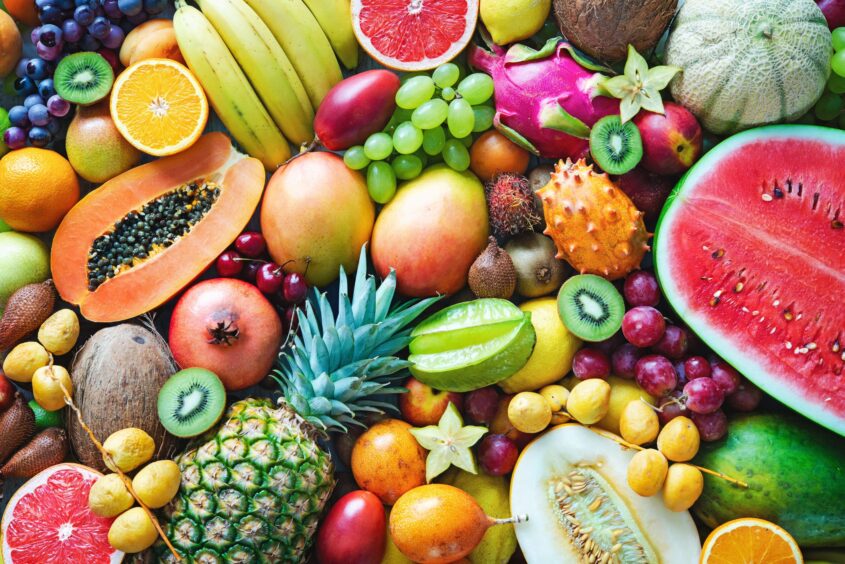
In stores, the fruit is often stored in the refrigerator, but this method is not very suitable for home storage. Besides, low temperature is contraindicated for some fruits:
Bananas lose their attractive appearance in the cold – their peel is covered with many dark dots. Over time, it turns black and flesh, becoming slimy and unpleasant to taste.
Avocado is most often sold prematurely. If you put it in the refrigerator, it will remain in the same condition. But at room temperature after 5-7 days it will be suitable for food. If you cut a ripe avocado fruit and did not eat it completely, you still need to wrap the remaining part in food wrap and put it in the refrigerator.
Kiwi, like other tropical fruits, prefers warmth. Hard and sour kiwis ripen at room temperature and become sweet. And ripe ones need to be eaten immediately — what is in the refrigerator that they will begin to rot in 5-7 days without it.
Apples during storage emit ethylene – a gas that promotes ripening. If it constantly evaporates in the open air, it accumulates in a small refrigerator and leads to the fact that the fruit begins to rot. And not only apples but also other fruits that lie nearby. Therefore, for storing apples, you should prefer a balcony or other cool place with free air exchange.
Melon and watermelon lose their flavor when stored in the fridge for a long time. The juice evaporates, which makes the pulp lethargic and quickly spoils if the fridge is equipped with the No Frost system. As for the cut fruits, you should eat them immediately. As a last resort, half a watermelon or melon covered with a plate will stand on the table for 2-3 hours without problems.
3. Ultra-Pasteurized Milk
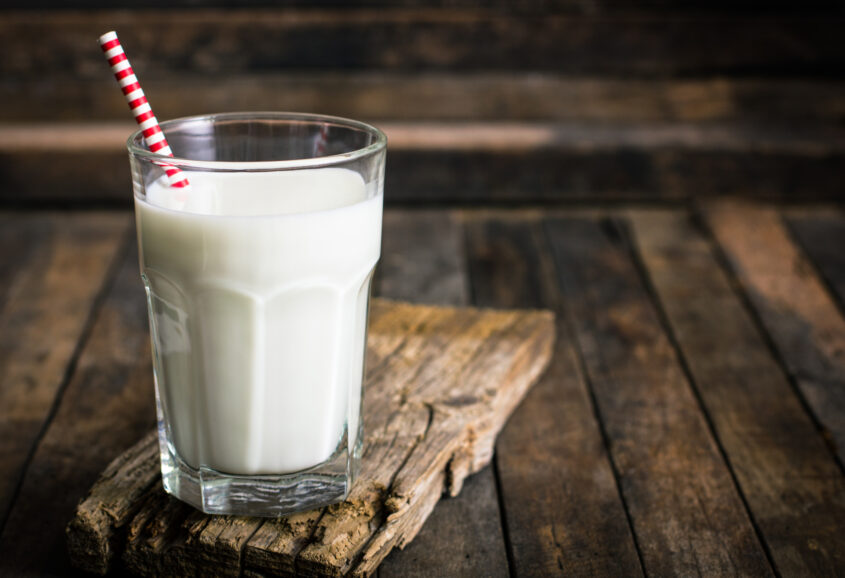
There is no point in putting an unopened Tetrapack of ultra-pasteurized milk in the refrigerator. This product is stored at temperatures up to + 25 °C. So it will not spoil, even if it stays on the kitchen table for several months. Those who constantly do not have enough space in the refrigerator, it is worth taking this information into account.
4. Potato
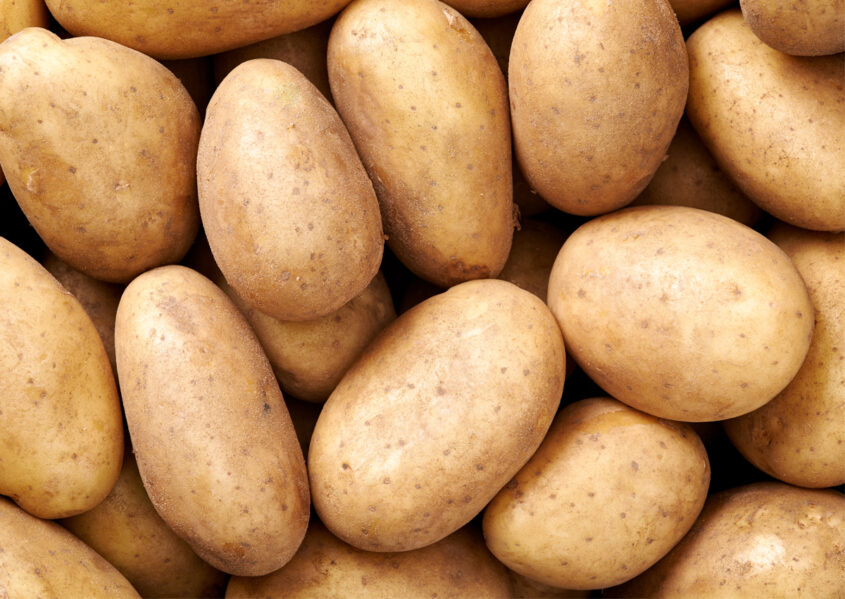
Under the influence of low temperatures, starch is broken down into its parts. As a result, sugar is formed — it gives the tubers an unusual sweet taste. For this reason, it is undesirable to store potatoes at a temperature below +10 °C. Besides, if the tubers are stored for a long time in a tied plastic bag, they will be covered with condensation and become moldy. And if you put them in a box without a bag, they will start to dry and quickly shrivel.
However, there are two exceptions:
- fries, prepared in factories by the method of shock freezing, perfectly tolerate storage in the freezer.
- Pre-cooked tubers will spend a day or two in the fridge without loss of flavor. However, in this case, they can acquire an unappetizing gray-blue shade.
5. Olive Oil
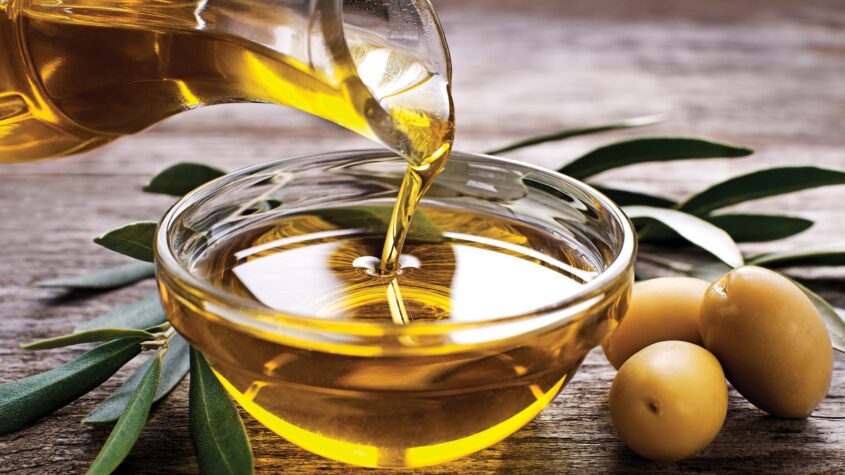
All Housewives know that the lower the temperature, the slower the olive oil is oxidized. To preserve its taste and aroma, put the bottle in the refrigerator — this conclusion seems quite logical. But the problem is that at +4°C, oleic acid begins to crystallize. Also, due to the precipitation of wax, white flakes appear in the oil. This spoils the appearance of the oil.
For olive oil to remain homogeneous and transparent, it is necessary to keep it in a place where the air is not heated above +10°C and is not cooled below +7°C.
6. Chocolate in a Paper Wrapper
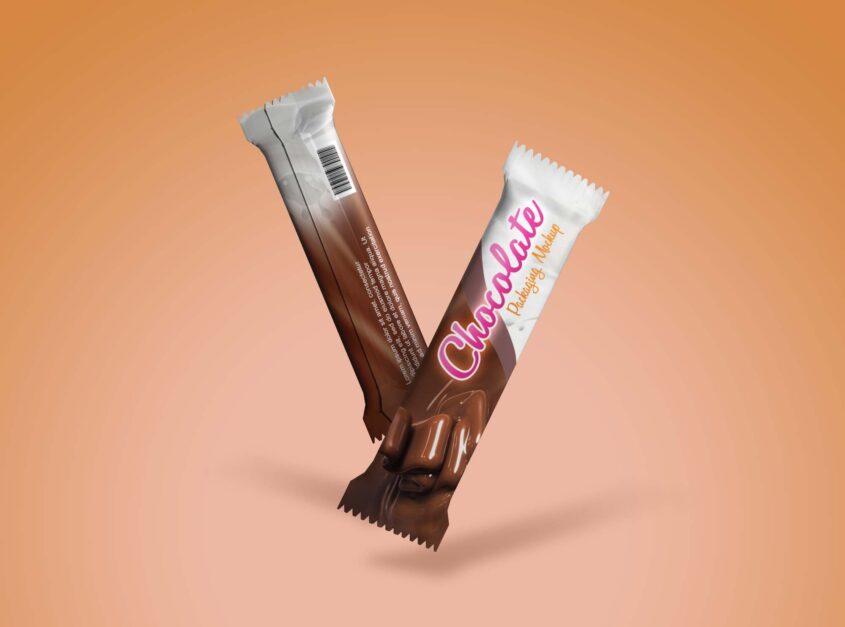
The better the chocolate, the higher its melting point. On average, it is +28 °C, so in summer, you should keep your bars and chocolates in the fridge. However, this statement is only true for hermetically sealed confectionery products. Although most factories seal chocolate in a polymer wrap, there are also chocolates in paper wrappers. Before you put them in the refrigerator, you need to vacuum them in a bag or put them in a clean container with a lid. The same rule applies to chocolate bars that have already been opened. The same rule applies to chocolates that have already been opened.
These precautions are necessary for two reasons:
- the chocolate doesn’t accidentally get wet;
- the bar doesn’t get soaked in the smell of fish, cheese, smoked sausage, and other products.
7. Garlic and Onion
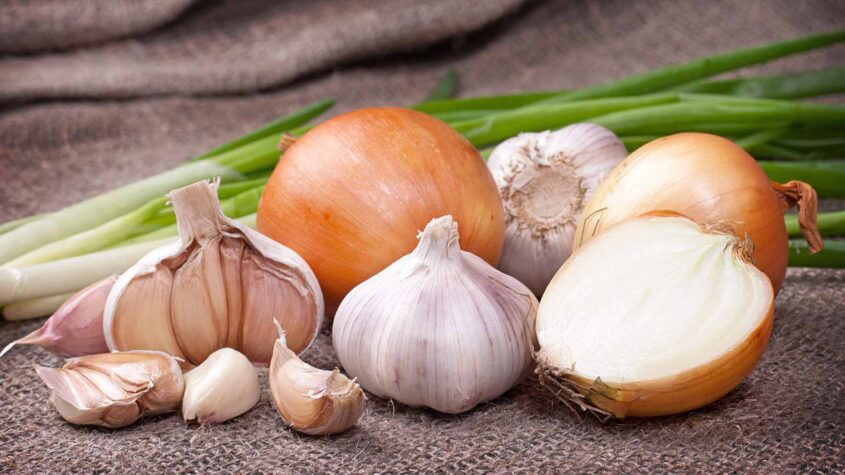
Practice shows that onion and garlic are best stored in a dark, cool, dry room. But the microclimate (like in the fridge) is contraindicated for these vegetables. At 41-43 °F, they begin to rot and get an unpleasant smell. Some mistresses keep onions in a tightly tied bag – this makes the situation even worse.
The ideal temperature for onions and garlic is +60 °F. Put them in the kitchen drawer away from heaters, stoves, and sinks, where they stay for 4 to 8 months without any signs of spoilage or germination.
Why does the food that can and should be stored in the refrigerator deteriorate there much faster?
There are several reasons for that:
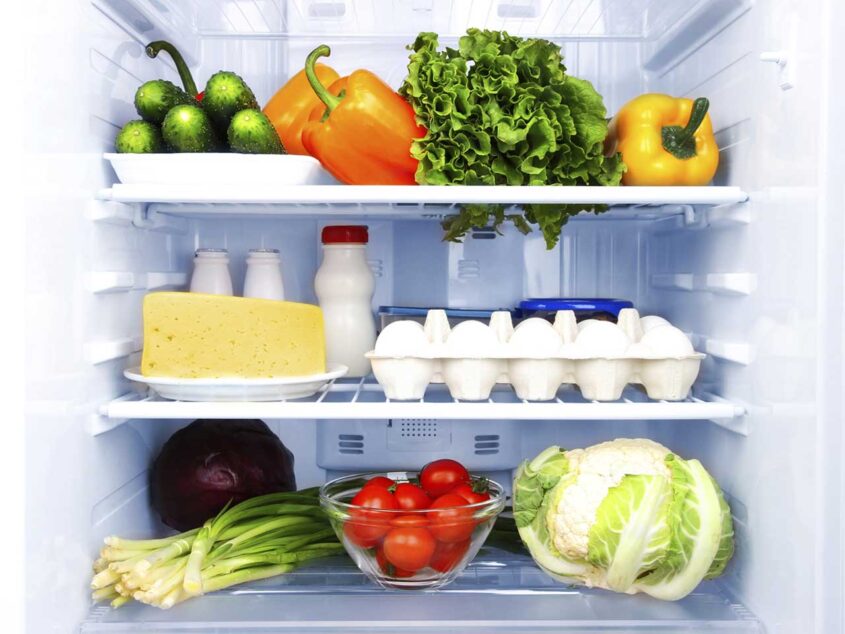
- Insufficient heat treatment. For example, if you add poorly washed greens to the soup and then do not let it boil, it will likely turn sour in a few hours.
- Dirty dishes. An unwashed container or plate becomes a source of microflora, which can cause accelerated spoilage of products. Moreover, dishes that contain a lot of protein and fat will spoil sooner than fruits or vegetables.
- Spoiled foods. The rest of the food is immediately seeded with fungal spores and bacilli if something is rotten or moldy in the refrigerator.
The list of products that do not belong in the cold is not so long. So it will not be difficult to remember all its points and do not make mistakes anymore. This will help save food from premature spoilage and save on products that previously had to be thrown away.

